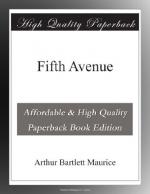“It was hard,” the confidences continued, “but I do not complain. We were growing old, no doubt of that. We were of yesterday, and you know the old saying of the ring that youth must be served. Even John L. learned that, and before him, Joe Coburn and Paddy Ryan. Then Jim Corbett learned it too, and freckled ‘Bob’ Fitzsimmons, and now there is a young fellow named Jim Jeffries who perhaps will find it out in his turn. You see, in my youth I was something of a patron of sport. I knew them all, and they are all down and out, and I am down and out.” There was a plaintive whine in the spluttering, squeaky voice.
“We knew that our hour was passing. We read the story in the averted eyes of those who in earlier days we had regarded as our fast friends, or we heard it in the outspoken, contemptuous remarks of those who had no regard whatever for our feelings. To strangers, above all, were we objects of derision. Throaty, mid-western voices made disparaging comparison reflecting, not only on us, but on our fair city. Visiting Englishmen surveyed us through monocles and talked of the buses of the Strand and Regent Street. There was a French artist, a Baron Somebody-or-other, who afterwards wrote a book called ’New York as I Have Seen It.’ He had married an American girl, the daughter of a comedian at whose clever whimsicalities my passengers used to laugh uproariously. I had carried him often—that actor, and knew him as one of the most genial and companionable of men. One day the Frenchman, accompanied by his father-in-law, stopped me at a street corner down near Washington Square, climbed up beside my driver, and rode to the end of the route. Here, thought I, is where I get a little appreciation. Here is a critic from the older civilization, a man with a proper reverence for the past, who can look beyond the freshness of varnish. I have a right to expect something in the nature of consideration from him. Bah! All he said was: ’Among the splendid carriages and the high-priced automobiles, perhaps to prove that we are in a land of freedom, the black, dirty, wretched omnibuses ply from one end of the Avenue to the other.’ Honest now, wouldn’t it jar you?
“I called you Mr. Washington Arch just now. I was wrong,” the accents were now no longer plaintive, but raucous and sneering. If I had doubted before, there was now no questioning the old rascal’s claim to recognition as a fellow New Yorker. “But I was wrong. You are Mr. Piker from Uptown Somewhere. Had you been Mr. Arch, you would have recognized me as soon as I did




